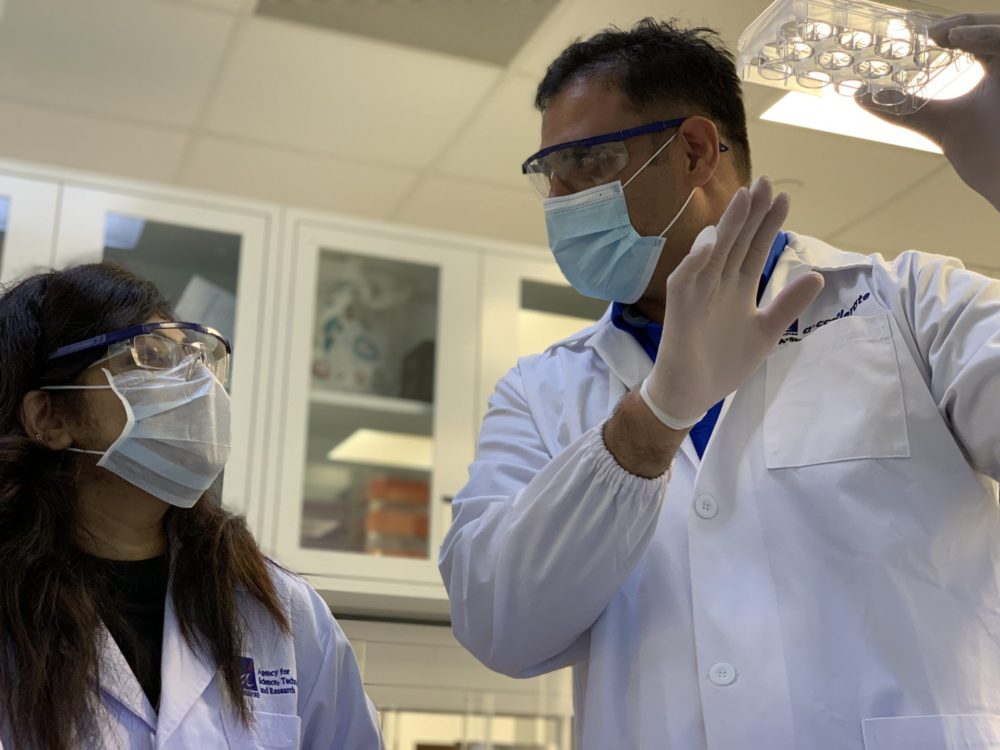TurtleTree Labs, a Singaporean startup that’s culturing milk in the lab from animal cells, has launched a B2B business to develop growth factors for the wider cellular agrifood industry.
Dubbed TurtleTree Scientific, the new unit will work with ‘lab-grown’ meat and dairy companies to produce affordable food-grade growth factors and cell culture media, building on knowhow developed in house by its parent company while producing its own cell-based milk products.
The aim is to surmount one of the major obstacles to wider market entry for cultured proteins. While alt-protein startups — including TurtleTree Labs itself — have managed to significantly reduce some costs associated with the production of cell-based meat and dairy, the crucial elements of culture media and growth factors remain expensive.
In a statement announcing the launch, TurtleTree said it expects to be able to bring average prices down to “a fraction” of pharmaceutical-grade equivalents.
According to the Good Food Institute, cell culture media and growth factors contribute between 55% and 95% of the marginal cost for cell-based meat production.
“This highlights the important role cell culture media and growth factor has in the entire cellular agriculture progress down the cost curve to becoming economically feasible,” TurtleTree Labs co-founder Fengru Lin told AFN.
“Currently, the media components and growth factors required are exorbitantly expensive,” she said. “With the first commercial approval of cell-based meat by the Singapore Food Agency recently, the prospect of cellular agriculture becoming part of the food chain is closer than ever. This is a tremendous opportunity to reinvent cell culture media and growth factors for cellular agriculture.”
The opportunity is certainly there. According to market research firm Persistence, the global market for cellular ag growth factors was valued at $1.5 billion in 2019, and is expected to grow 8% each year until 2029 when it will hit $2.5 billion.
Many other startups are addressing the growth media cost issue in different ways, including Canada’s Future Fields and TurtleTree’s fellow Singaporean outfit SingCell to name just two [disclosure: both are graduates of accelerator programs run by GROW, the impact fund managed by AFN‘s parent company AgFunder.]
According to co-founder Max Rye, TurtleTree Scientific’s competitive edge “arises from the expression host it is using to produce these cell culture media components, which will be of higher volume, higher quality, and lower cost” than alternatives.
Nevertheless, the move into offering a B2B service to other alt-protein startups — including many that could potentially become competitors to TurtleTree’s core product business — may raise some eyebrows.
But Rye told AFN he does not foresee significant conflicts of interest “as growth media is a common component across different cell agriculture businesses,” adding that TurtleTree Scientific’s objective is to “provide cost-effective growth media to enable companies in the cellular industry to progress together.”
Despite being a subsidiary of TurtleTree Labs, TurtleTree Scientific will be run as an independent company and will seek separate funding from investors, “with its own team of experienced industry players driving it,” Lin confirmed.
TurtleTree Labs itself closed a $6.2 million pre-Series A round last month, nabbing funds from Hong Kong’s Green Monday Ventures, Saudi Arabia’s KBW Ventures. Canada’s Eat Beyond Global, and Switzerland’s Verso Capital. This followed a July 2020 seed round which netted $3.2 million.
Got a news tip or a story idea? Email me at [email protected] or find me on Twitter at @jacknwellis





